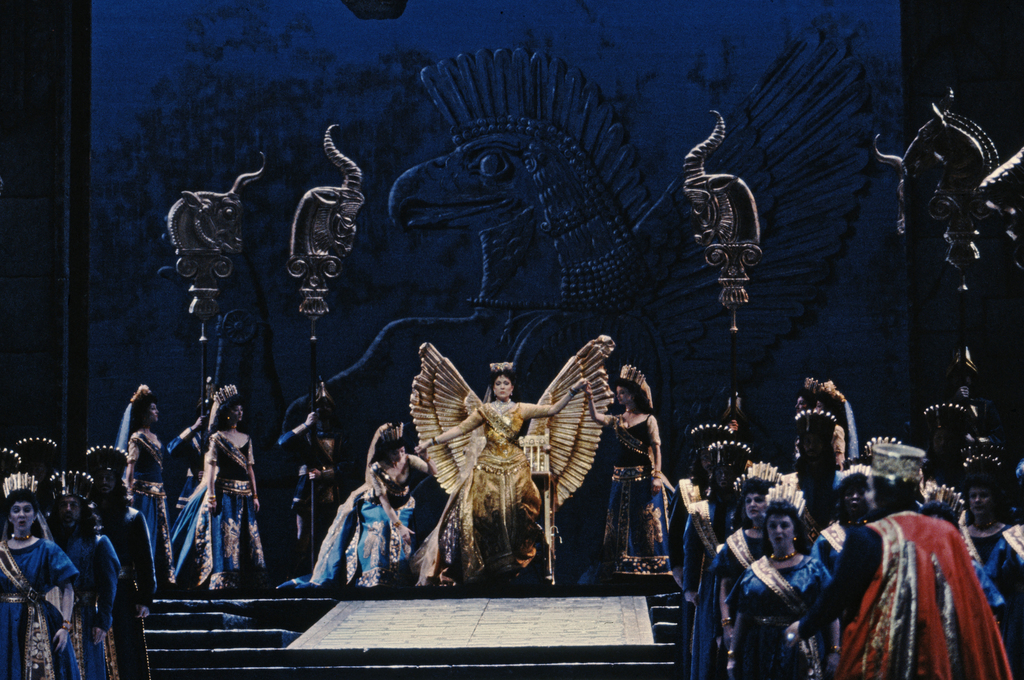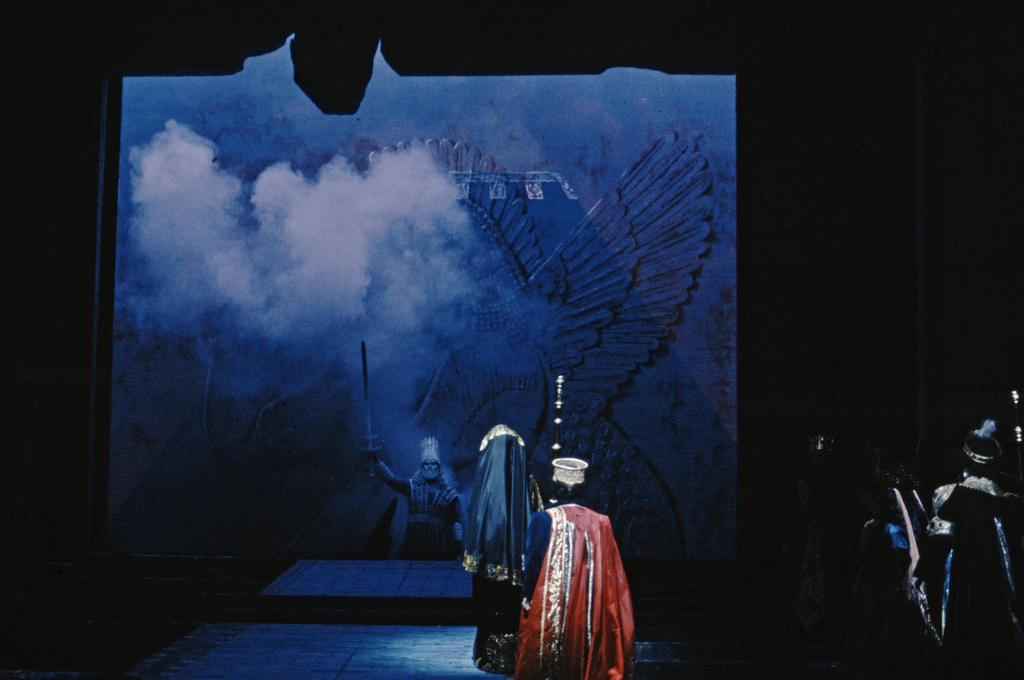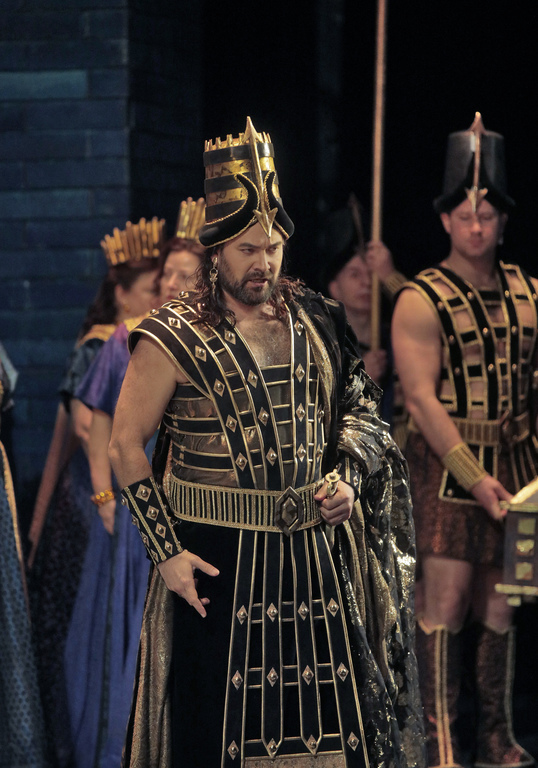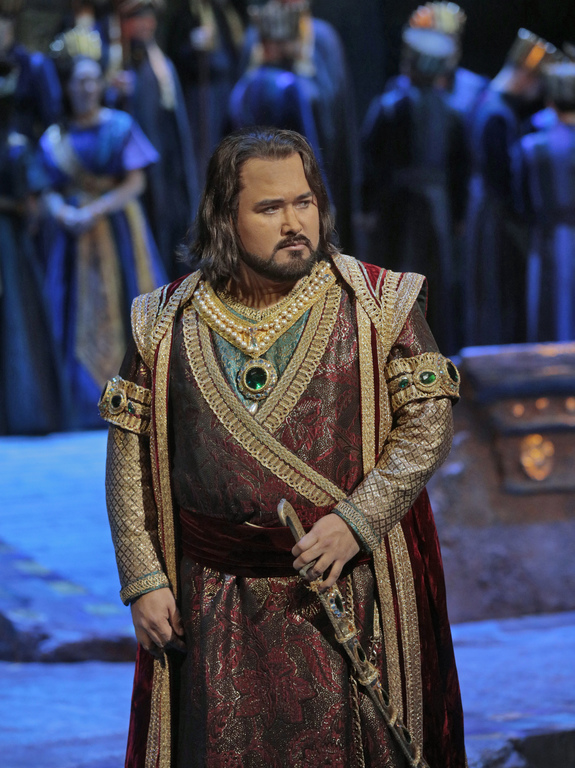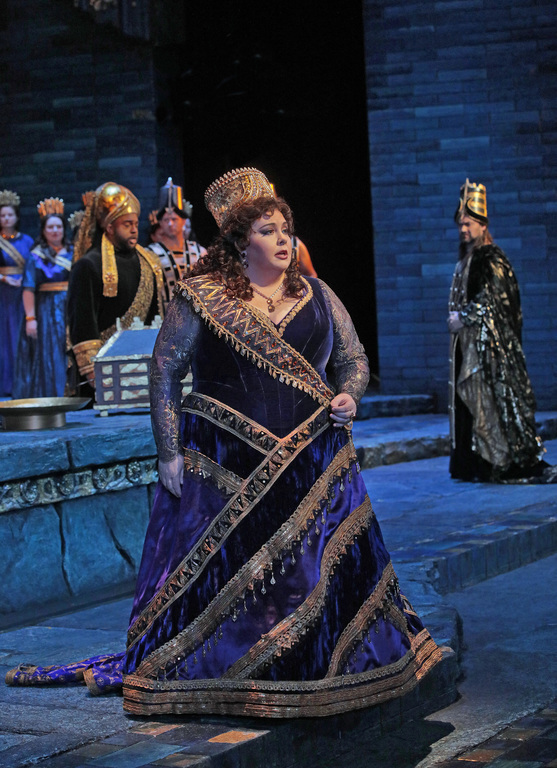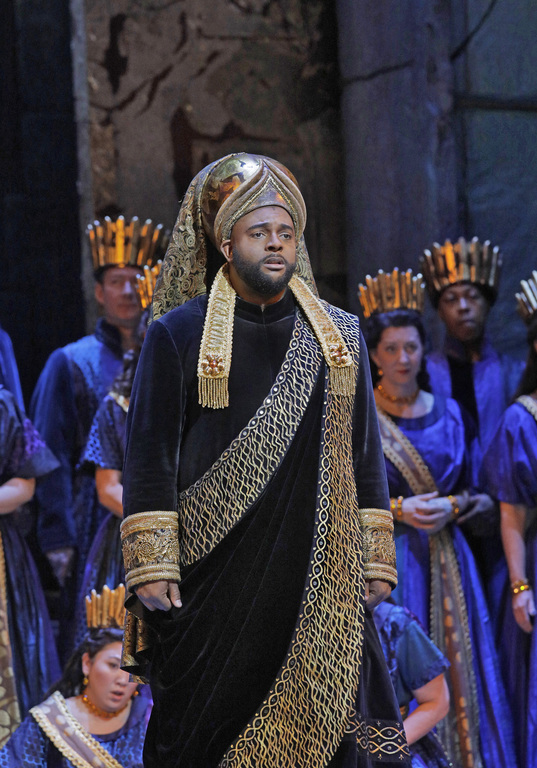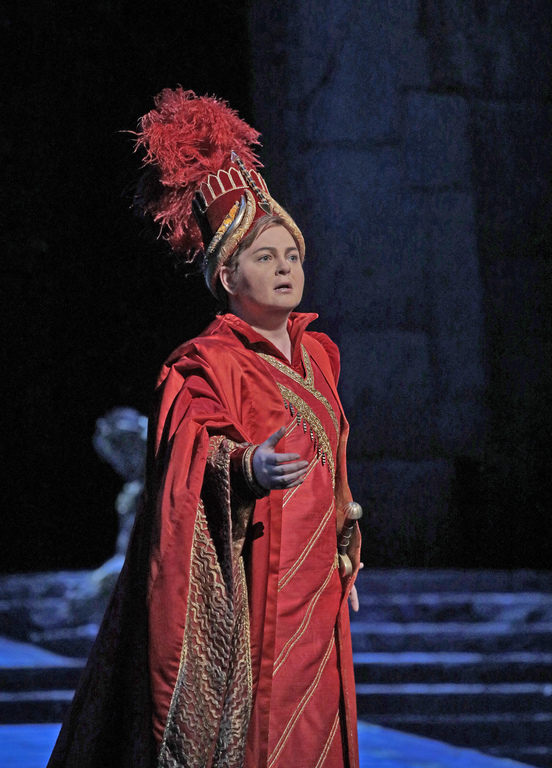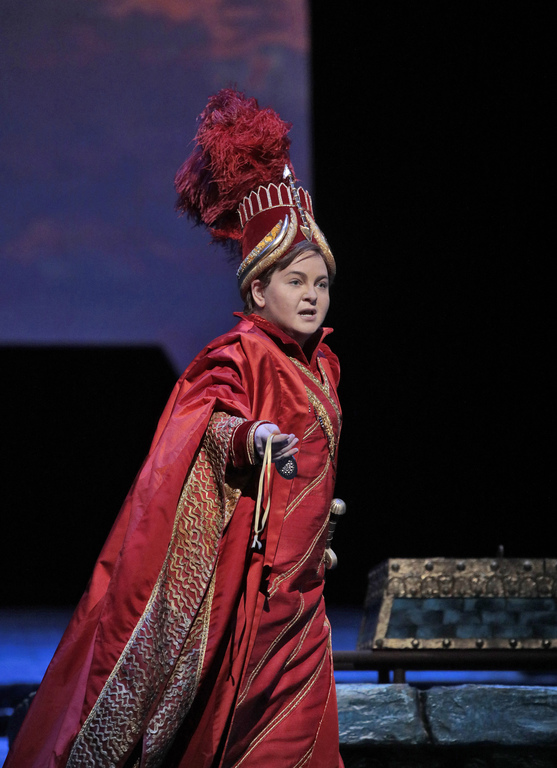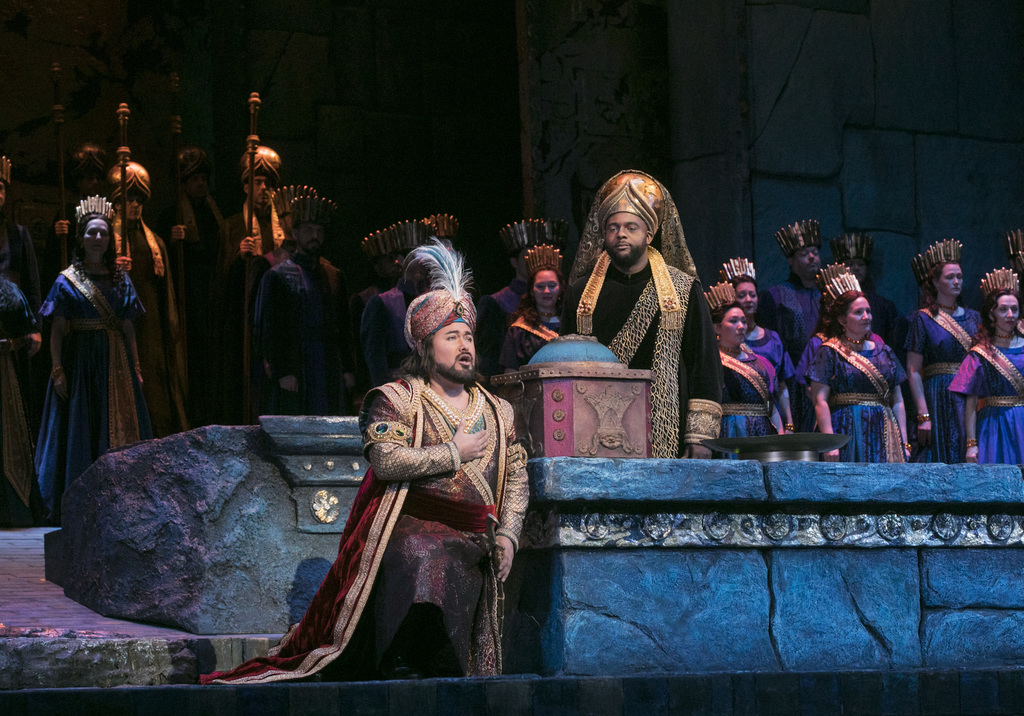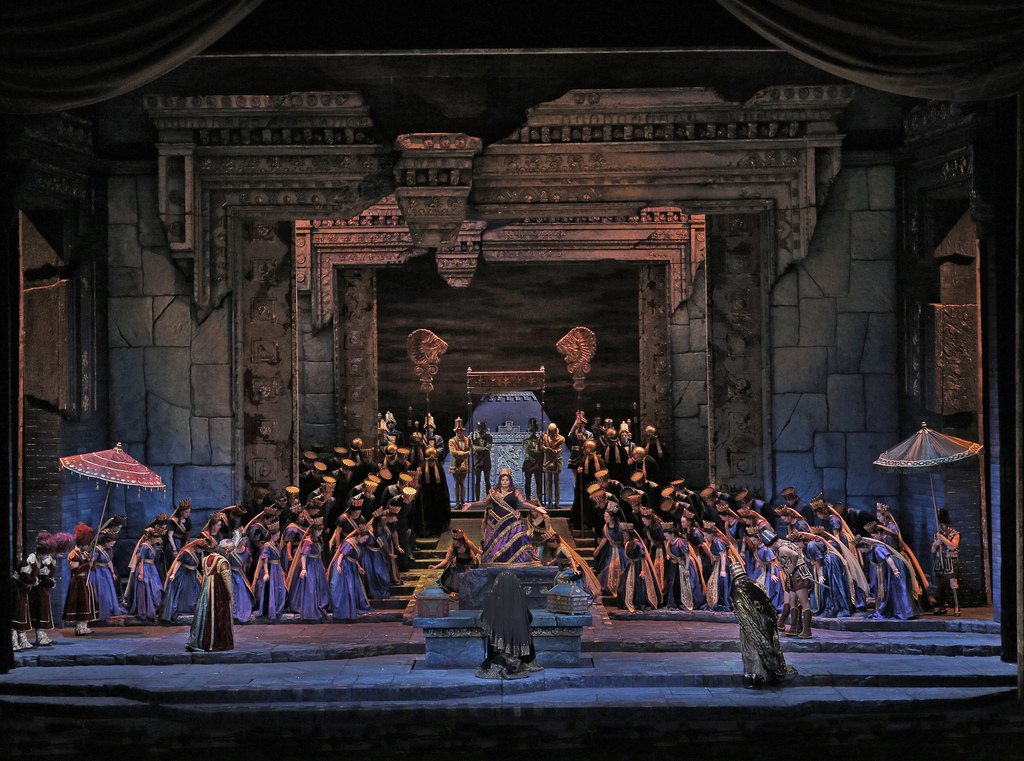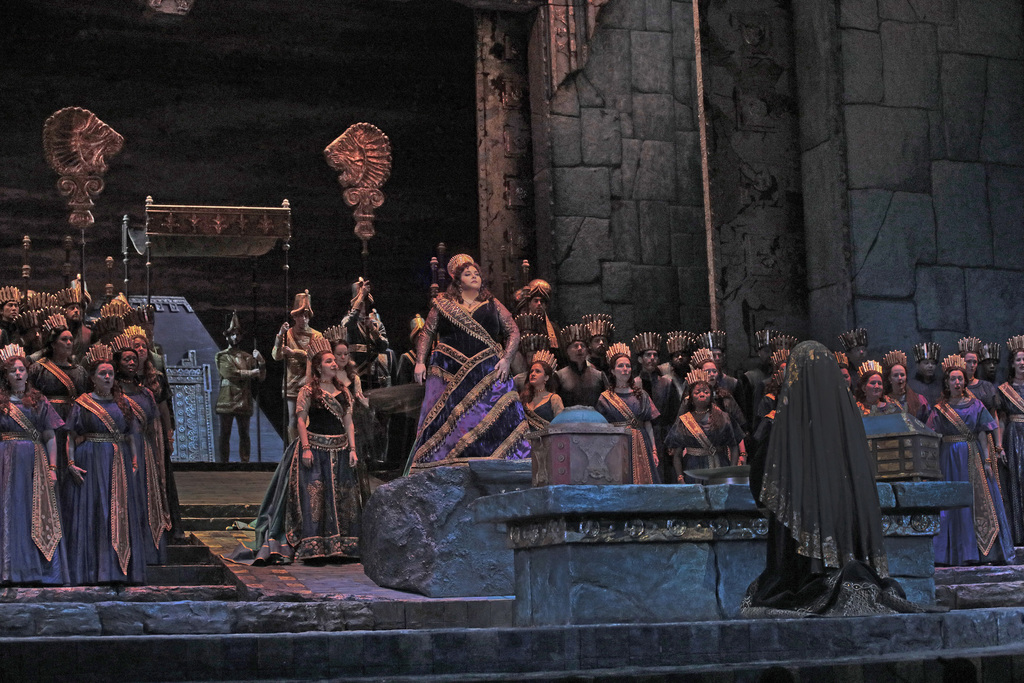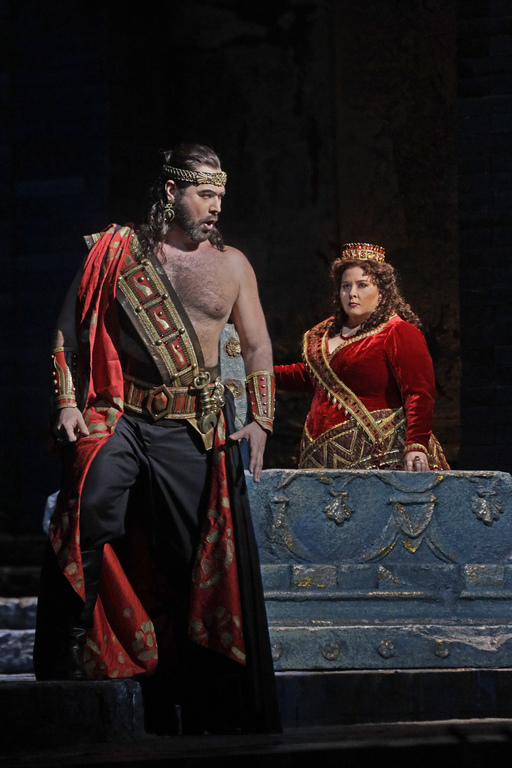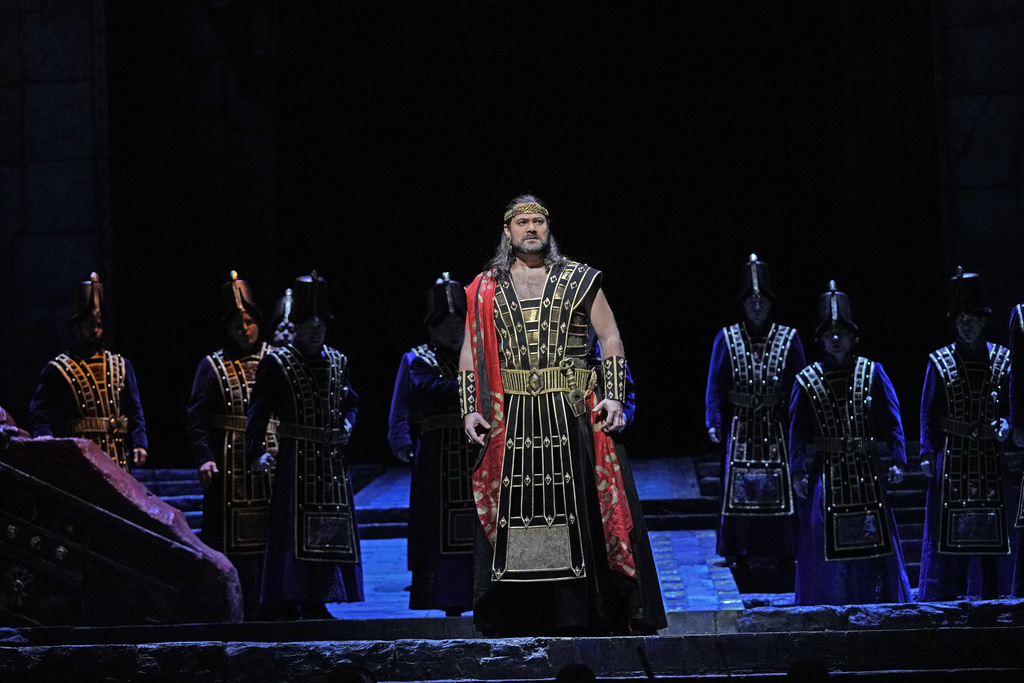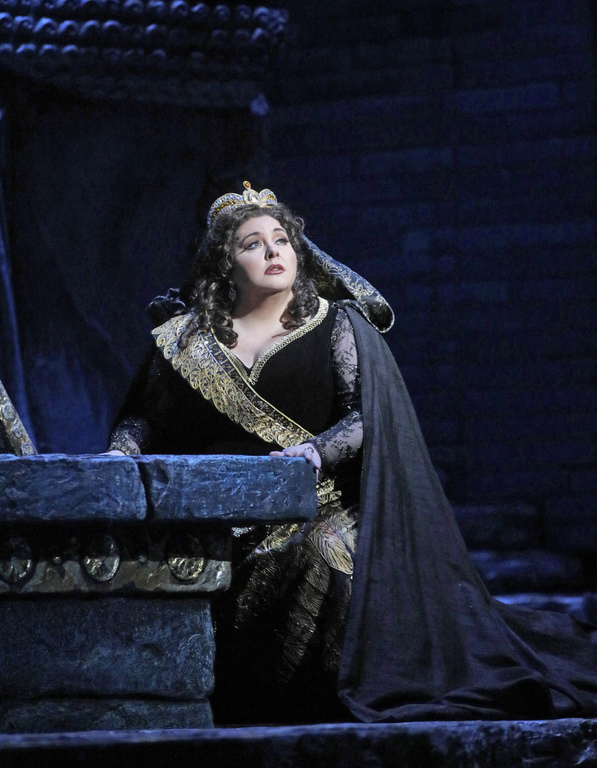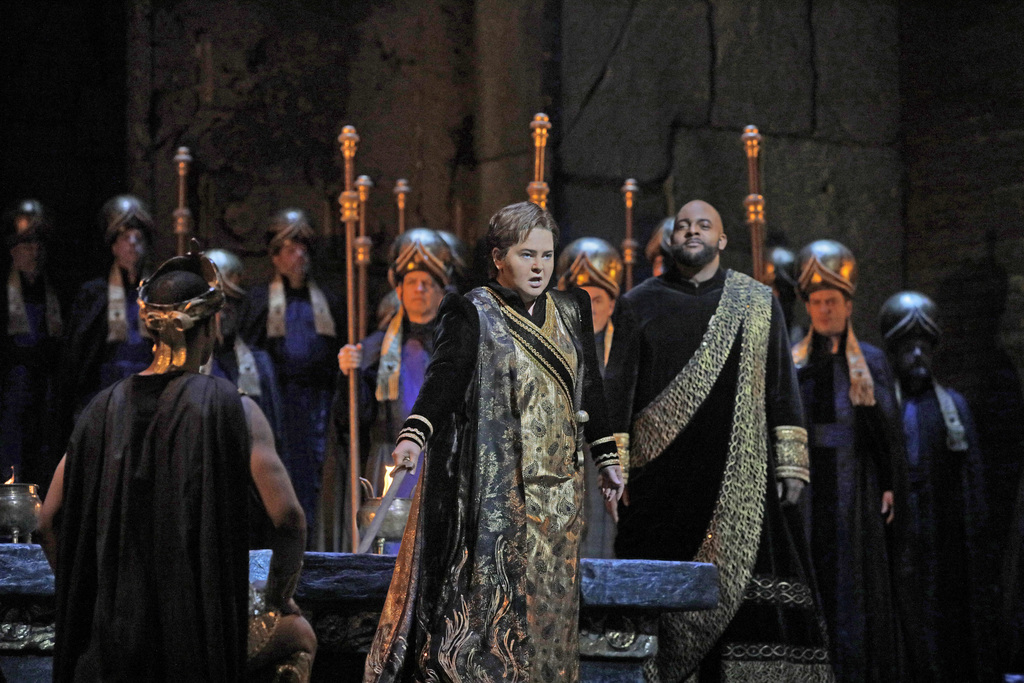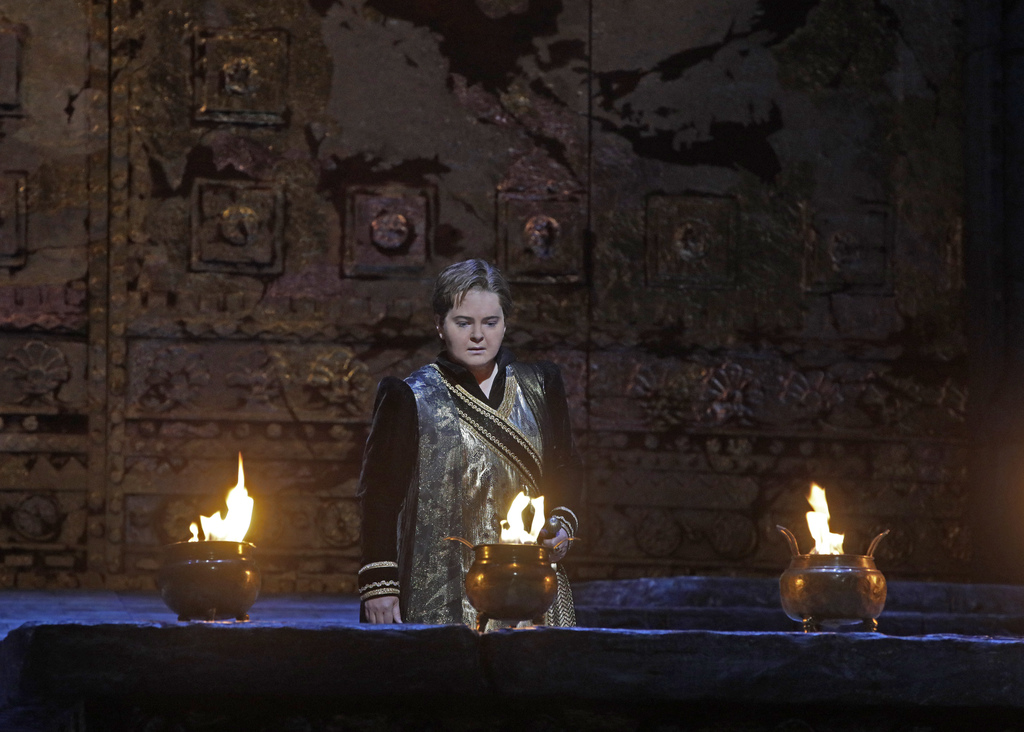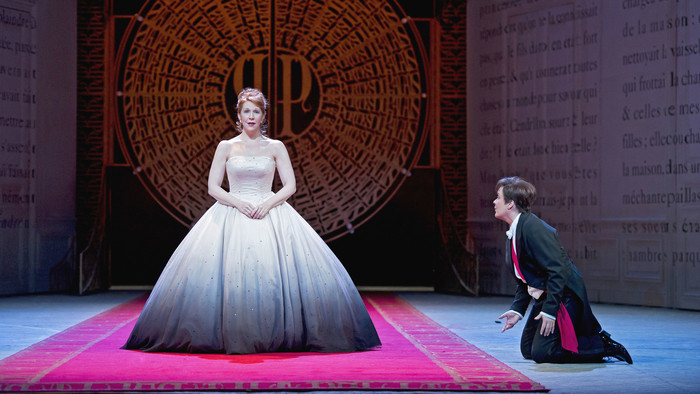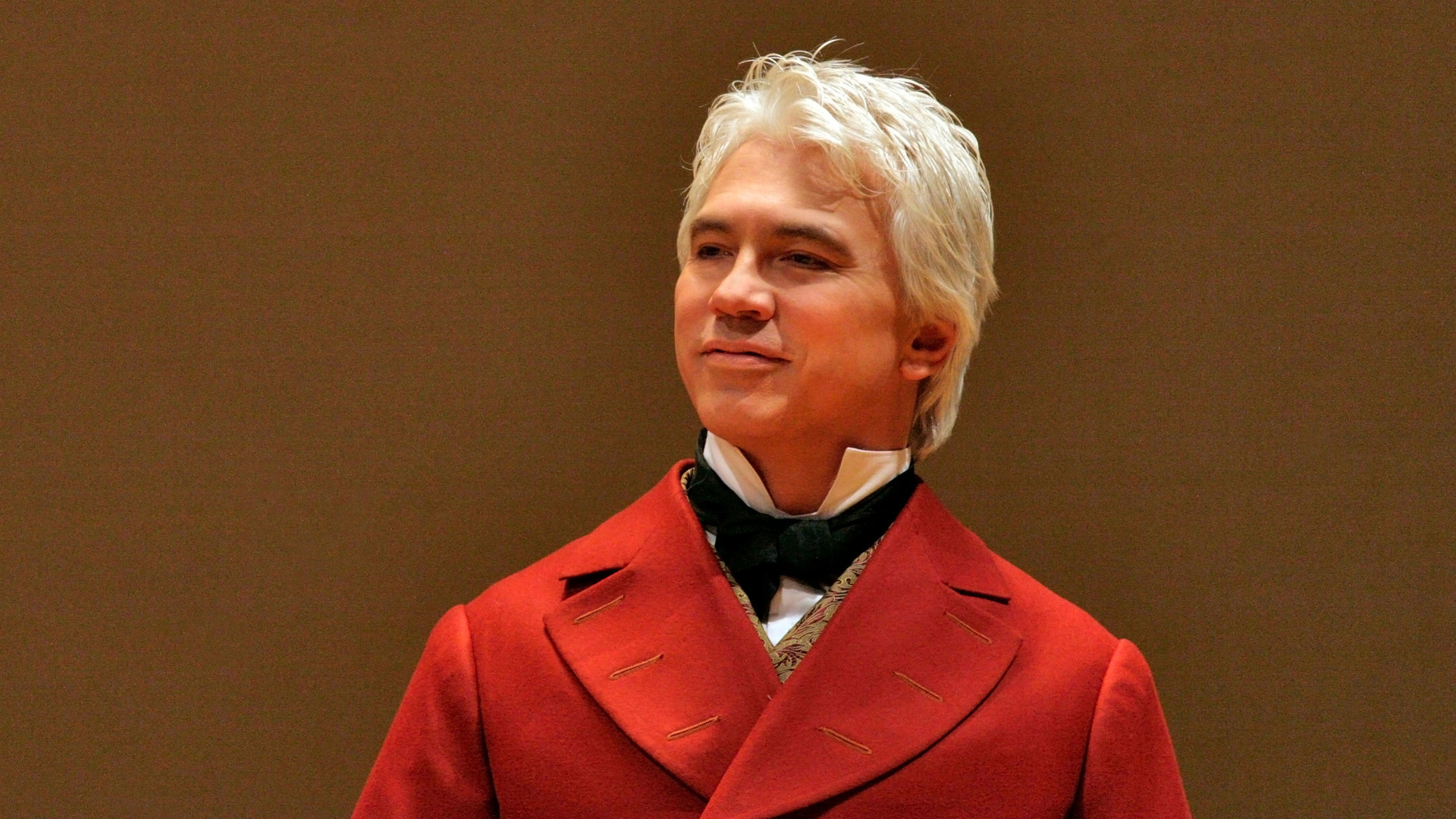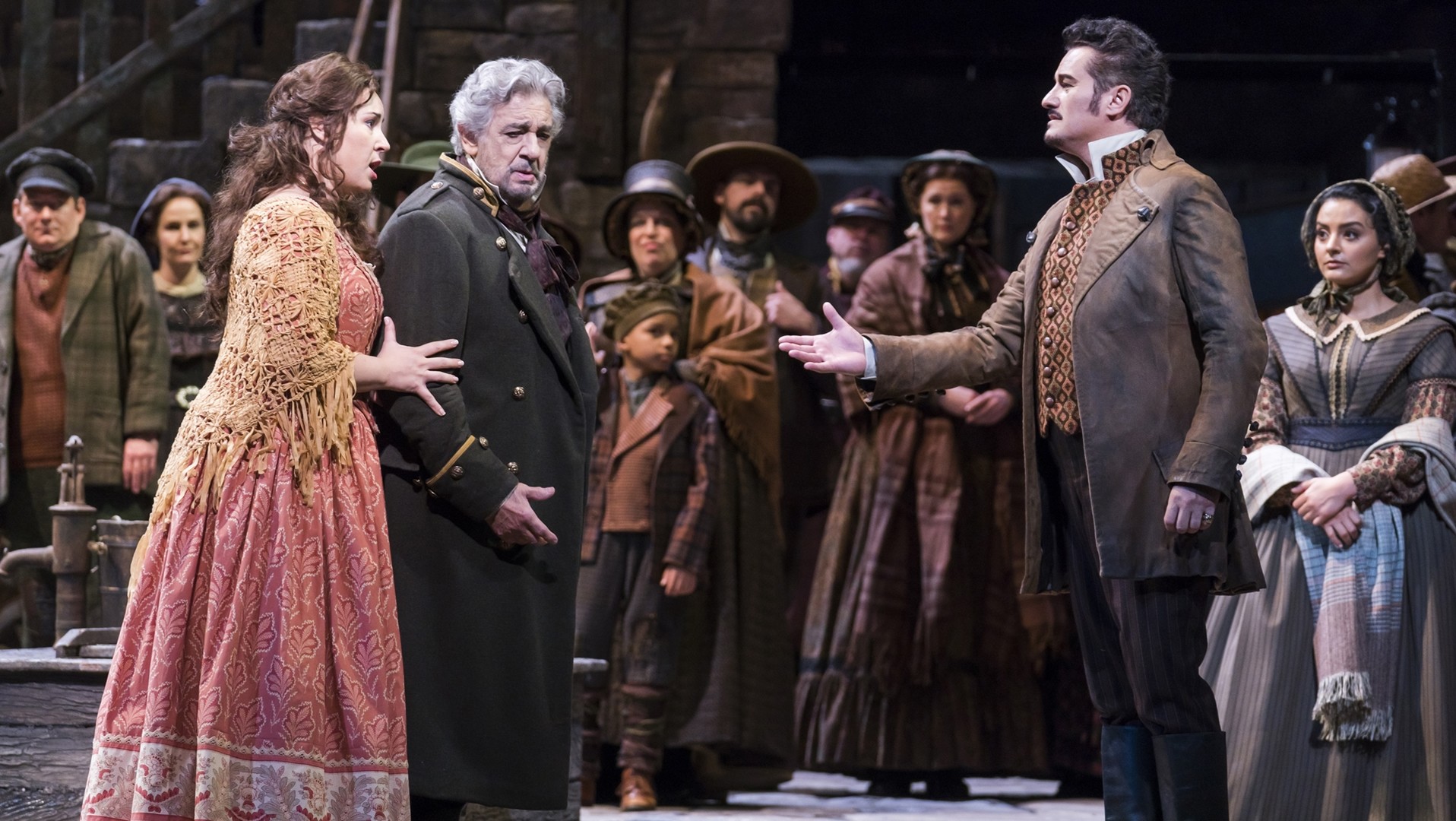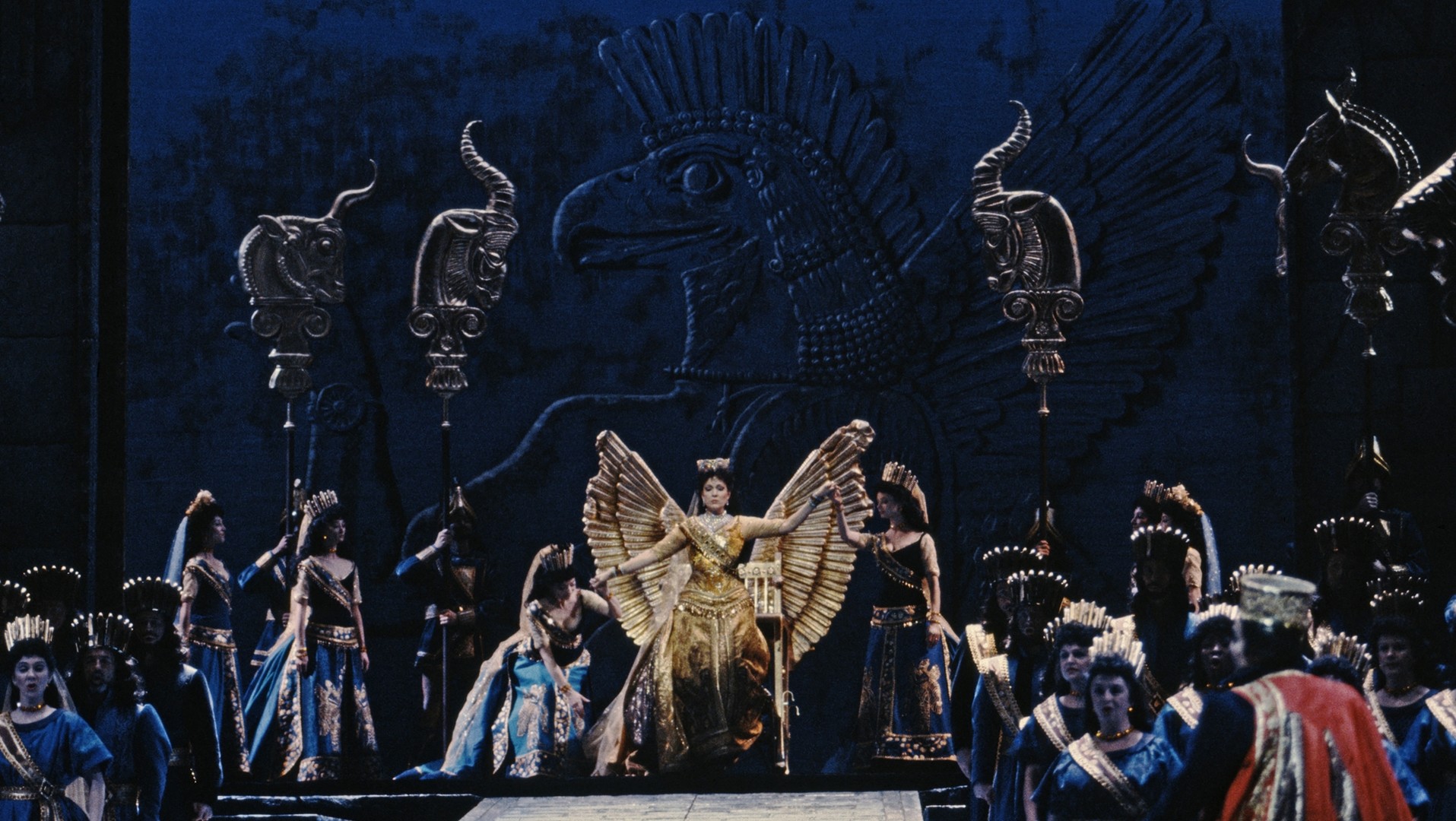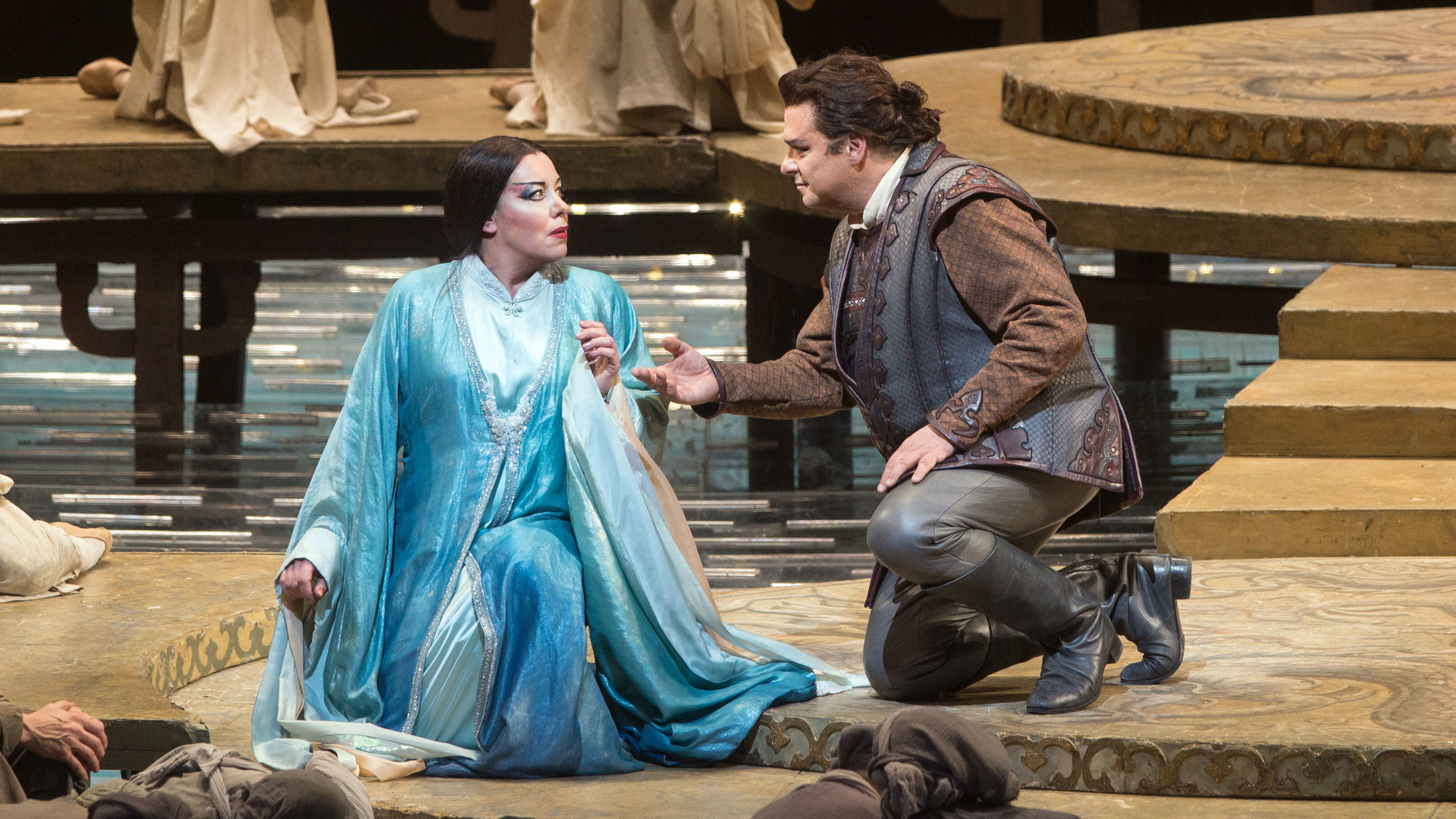ACT I
Ancient Babylon. The high priest Oroe opens the Temple of Baal, as Idreno, an Indian prince, pays homage. Assur, a prince descended from Baal, brings offerings in hopes that Queen Semiramide will choose him as successor to her late husband. The queen enters, but with a flash of lightning, the sacred altar flame goes out. Believing this to be a bad omen, Oroe warns that the ceremony should not proceed.
Arsace, commander of the Assyrian army, arrives in answer to a summons from Semiramide. He warmly recalls his beloved Azema, whom he once rescued from barbarians. He entrusts a casket containing relics and documents from his late father to Oroe. Assur appears, and when Arsace tells him that he will ask Semiramide for Azema’s hand in reward for his bravery, the older man warns that Azema has been betrothed since birth to Ninia, the missing crown prince. Arsace is defiant in his love, and Assur admits his own desire for Azema.
In the Hanging Gardens, Semiramide awaits the arrival of Arsace, whom she hopes to wed. She receives a message from an oracle stating that she will regain peace of mind with a new marriage. When Arsace enters, she tells him that she is aware of Assur’s ambitions for the throne and will not permit Assur to wed Azema. Arsace believes the queen knows of his love for Azema, but Semiramide mistakenly thinks that Arsace’s ardor is meant for herself and vows to give him whatever he desires.
In the throne room, Semiramide announces that Arsace will become both king and her husband. The news comes as a surprise to everyone, especially when the queen promises Azema’s hand to Idreno. Thunder and lightning signal the gods’ displeasure, and the ghost of the fallen King Nino appears. He announces that Arsace will reign but only after a victim is sacrificed in atonement. Fearlessly, Arsace vows to avenge the king’s death, but the apparition vanishes, warning Semiramide not to follow until her time has come. The crowd wonders what guilty person could have angered the gods.
ACT II
In a hall within the palace, Assur reminds Semiramide that he arranged Nino’s death so that she could ascend the throne and that she promised her hand to him in return. The queen repudiates his claim and says that if her son Ninia were alive, he would help her. Assur is determined to be avenged.
In the sanctuary, Oroe tells Arsace that he is actually the crown prince Ninia and shows him a scroll written by the dying Nino identifying Assur and Semiramide as his assassins. Arsace accepts the duty of killing Assur but cannot bring himself to take his own mother’s life.
Azema mourns the loss of her beloved Arsace, but when Idreno appears, she realizes that Arsace hasn’t married the queen yet. Idreno still hopes Azema will accept his love. Semiramide and Arsace enter, but he says that he cannot go through with the marriage, showing her the fatal scroll. Guilt stricken, she bids her newly rediscovered son to kill her and avenge his father, but Arsace hopes that the gods will spare his mother.
Outside Nino’s tomb, Assur learns from loyal conspirators that Oroe has frightened the people with omens and their chance to seize the throne is lost. Assur plans to hide in the tomb and ambush Arsace but becomes frightened when he has a vision of an iron hand brandishing a sword. Fearing he has gone mad, his cohorts are relieved when the apparition fades and he regains his composure.
In the vault beneath the tomb, a group of priests awaits the traitor who will try to violate its precincts. Guided by Oroe, Arsace enters the vault and conceals himself to await his rival. Assur appears, and Semiramide descends in hopes of saving Arsace. Wandering in the dark, all three feel overcome by fear. When Oroe tells Arsace to strike, he accidentally fells Semiramide, who has stepped between him and Assur. Oroe orders Assur to be arrested and stops Arsace, who despairs at having unintentionally killed his mother, from committing suicide. The people rejoice in the gods’ victory and implore Arsace to assume the throne.







